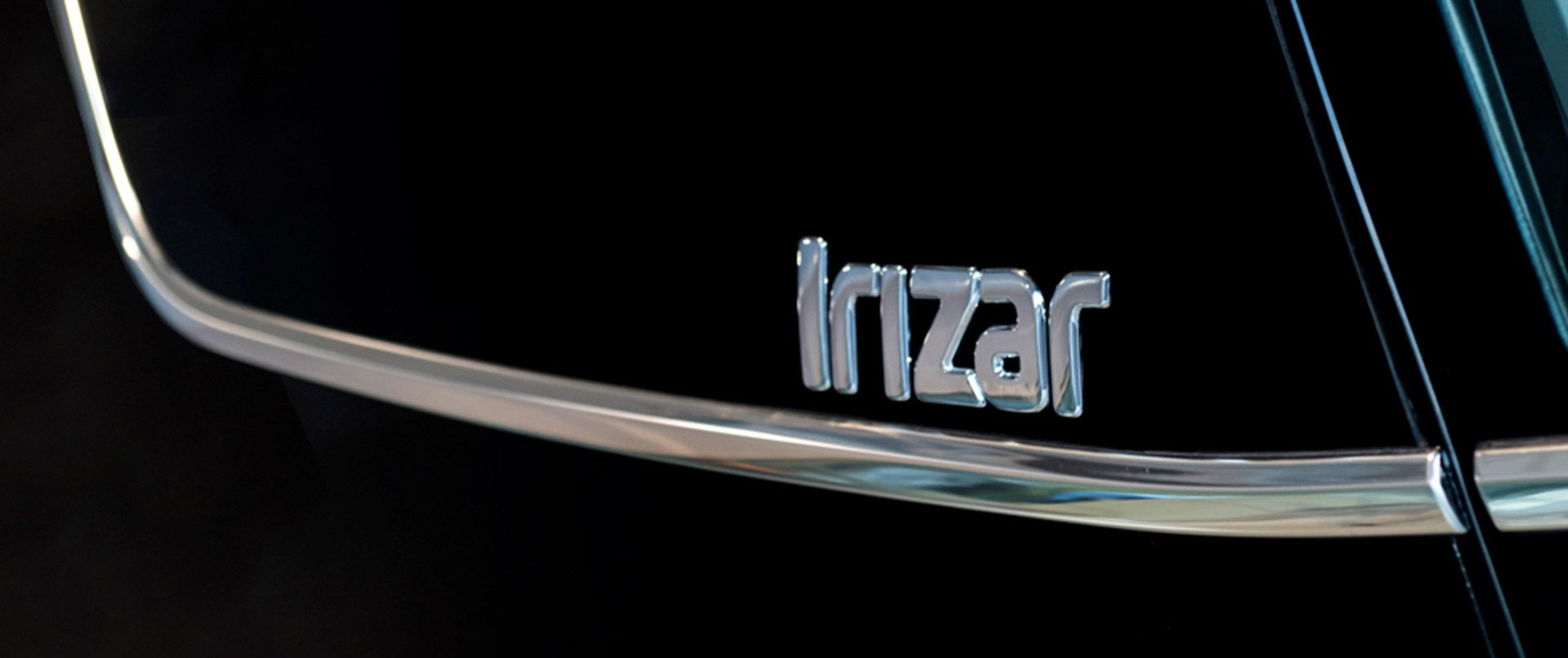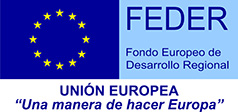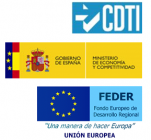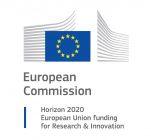

Creatio is the Irizar Group’s Research and Development Centre which was created in order to enhance the Group’s applied research and technological development capabilities both for its own-brand products as well as for the main coachwork components. Creatio works in long-term innovation, with a view to improving sustainable competitiveness in the future and generating wealth and employment as it grows.
It is the result of the constant commitment to industrial innovation which is a key strategy of the Irizar Group. 2009 saw a strategic revolution take place which helped Irizar to grow and become stronger. Irizar focused on the brand, became a coach manufacturer and made a strong commitment to carry out a policy of industrial diversification which resulted in the incorporation of companies in sectors with high growth potential such as energy, electronics and communications.
ZeEUS Project
In 2014, Irizar became the first company to deliver two electric buses to the city within the framework of the European ZeEUS (Zero Emission Urban Bus System) project, framed within the Seventh Framework Programme under the European Green Cars Initiative, whose aim is to demonstrate the economic, operational, environmental and social viability of electric buses as a genuine alternative mobility solution in urban environments.
It has 42 members, a budget of 13.6 million euros and an execution period of three years. The project will test the validity of zero emission technologies in eight European cities (Barcelona, London, Paris, Warsaw, Haarlem, Stockholm, Münster, Plzeň, Bonn and Cagliari) with different meteorological and orographic settings. This is a highly relevant initiative for Irizar since, aside from being one of the most important programmes being undertaken in Europe, it will be an ideal showcase for introducing the Group’s technology, as well as being a medium through which to test the market and assess its own product.
EBSF2 Project (2014-2016)
European Bus System of the Future 2, financed by the European Commission’s H2020 Programme. Consists of the development and validation of different solutions combining the efficiency of bus systems in an organised manner.
ELIPTIC Project (2014-2016)
Electrification of Public Transport in Cities project financed by the European Commission’s H2020 programme. The objective is to develop new buses to optimise existing electric infrastructure and rolling stock, saving both money and energy.
Etorgai IEB Project
Irizar Electric Bus. Launched in 2012 and aimed at the development of a fully electric city bus.
Along with Jema, Datik and the IK4-Vicomtech, IK4-Ceit and Tecnalia technology centres, Irizar is developing a 100% electric bus with a range of between 200 and 250 kilometres. In order to achieve this, it has developed a power train based on actual driving cycles, optimising propulsion and energy storage requirements, as well as significantly reducing the weight of the vehicle by incorporating aluminium as the main structural material.
Etorgai IAB Project
Irizar Assisted Bus – 2013/2015
Based on the development of haptic devices to make driving easier.
Etorgai ieHCB Project – 2014-2016
Development of high-capacity electromobility systems.
SADE: Safe Storage Systems
The project aims to research and develop a battery-pack solution designed for the urban mobility opportunity charging strategy. The development will have a working prototype, to be validated and tested on a laboratory scale.
This project has been co-financed by the Ministry of Energy, Tourism and the Digital Agenda, within the National Plan for Scientific Research, Development and Technological Innovation 2013-2016. Reference (TSI-100811-2014-1).
![]()
DURABAT Project
Project funded by the Collaboration Challenges 2015 programme
“Promoting technological development, innovation and high-quality research”
![]()

IZELBUS
Projects funded by INNPACTO 2012.
In this research line, related to the electric bus, the University Institute for Automobile Research (Insia) at the Polytechnic University of Madrid is assisting the Gipuzkoa-based centre to run bench tests on storage and propulsion systems. This includes characterising routes and on-board and sensory elements to measure the energy requirements of each component, to be able to “devise, design and scale what is needed to be able to offer services to operators”.
![]()

iEMS
Project granted by the Centre for the Development of Industrial Technology (CDTI) in 2013
VEMTESU Project (2014-2017)
Development of Highly Efficient, Electric-Powered Vehicular, Modular and Self-Supporting platforms for Urban Services” funded by the Centre for the Development of Industrial Technology (CDTI) via the CIEN Strategic Programme.
Definition, design and development of an Irizar i2e electric vehicle prototype for urban services. Permanent electric traction vehicle with exclusive electric operation in service (in an urban environment).


AUTOMOST
The AUTOMOST project entitled “Automated guidance for dual-mode transport system” has been funded by the CDTI’s (Centro para el Desarrollo Tecnológico Industrial – Centre for the Development of Industrial Technology) CIEN (Consorcios de Investigación Empresarial Nacional – National Business Research Consortia) programme in the 2016 call. The aim of this project is to develop technologies that enable the automation of vehicles in urban and industrial transport applications, in order to significantly increase efficiency, safety and sustainability.
![]()
Etorgai: B-APAIN Project (2015-2017)
B-APAIN: new advanced electromobility solution for industrial vehicles and Smart manufacturing.
MODELY17 Project (2017-2018)
The MODELY17 project entitled “Research and development of new Power Train components to reduce emissions on buses” has been funded by the PID (Research and Development Projects) program of the CDTI (Centro para el Desarrollo Tecnológico Industrial – Centre for the Development of Industrial Technology) in the 2017 call.
The aim of this project is to analyze, research and development of new propulsion system components (Power Train) to get a more efficient low-emission bus, an ecological driving, high robustness, safety and reliability.
![]()

eFLEET
Project submitted and approved by the Basque Business Development Agency (SPRI) in the 2016 HAZITEK call for proposals. The Irizar Group’s overall goal in this project is to develop technologies and strategies that enable the creation of modular, flexible and scalable electromobility solutions to make the mass deployment of medium/large fleets of electric buses viable by minimising the impact on the electrical grid and reducing their initial deployment and operating costs.
HI-ADVICE
Project submitted and subsidised by the Basque Business Development Agency (SPRI) in the 2017 HAZITEK call for proposals. The project’s main goal is to develop a unified cruise control system which is capable of safely and efficiently achieving level 2 autonomous driving in interurban environments thanks to the development of a new perception system that, in turn, will enable the progressive automation of interurban transport.

eRED-CO2 Project
The eRED-CO2 project, entitled “Reduction of CO2 emissions associated with the development of new coach bodies”, has been financed by the SPRI (Basque Business Development Agency) in the HAZITEK 2018, 2019 and 2020 programmes.
The aim of the project is to obtain a new line of long-distance coaches by carrying out bodywork-related actions in order to achieve an improvement in aerodynamics, weight and consumption resulting in a 7.5% reduction in CO2 emissions.

iPOWER4.0 Project
The iPOWER4.0 project, entitled “Digital-Modelled intelligent powertrain for connected electric bus”, which involves Irizar, Irizar e-mobility, Jema, Datik, Alconza, ITS and Virtualware, has been financed by the SPRI (Basque Business Development Agency) in the HAZITEK 2018 programme.
The aim of the project is to research and generate the knowledge to begin the digital transformation of bus manufacturing processes and the creation of new products/services to make the third generation of electric vehicles a reality.

HYBRIDeV Project (2018-2019)
The HYBRIDeV project entitled “Class II hybrid coach 100% electric and with a custom control module” has been funded by the PID (Research and Development Projects) program of the CDTI (Centro para el Desarrollo Tecnológico Industrial – Centre for the Development of Industrial Technology) in the 2018 call.
The aim of this project is the development of a new Class II hybrid coach, with 100% electric mode, with the electrification of components for greater efficiency and with a customized control module.

SAFERIDE Project (2019-2021)
The SAFERIDE project entitled “Safety Today for the Autonomous Tomorrow” has been funded by the SPRI (Basque Business Development Agency) in the HAZITEK Estratégico 2019 program.
The aim of this project is the research and development of technological solutions beyond the state of the art, aimed at providing a radical advance in the field of Active Safety, with which, at the same time, Irizar will enable the integration of fundamental elements for a future Autonomous Driving, arriving to manufacture new buses with a 2.5 level of autonomous driving.

DriveMOD Project (2020)
The DriveMOD project entitled “Automatic driving zone management system” has been funded by the SPRI (Basque Business Development Agency) in the HAZITEK Competitivo 2020 program. The aim of this project is the research and development of an automatic driving zone management system that operates by automatically switching driving modes for the circulation of a bus through LEZ zones.

iNewGen
The iNewGen project, entitled “New generation of coaches in premium segment”, has been funded by SPRI in the HAZITEK 2021 and 2022 program.
The objective is to obtain a new generation of modular buses with a common platform where the different segments have their base for subsequent model customization featuring the greatest technological advances in hybridization, connectivity, driving autonomy, safety, comfort, consumption, design and durability.

e-WASTE
This project will offer cities a new environmentally sustainable waste collection service based on research into new electromobility techniques that will result in a new hybrid truck that will use intelligent algorithms to guarantee 100% electric operation within urban centres. Furthermore, thanks to the implementation of public access charging infrastructures, this project will promote urban development based on sustainability, efficiency and the use of clean energy, fundamental pillars of the Smart City concept. On the other hand, thanks to the development of this project, the necessary knowledge will be obtained for the deployment of electric charging stations for heavy industrial vehicles both nationally and internationally.
Project funded by the Department of Economic Development and Infrastructures of the Basque Government (HAZITEK Programme) and the European Regional Development Fund (ERDF).
COACH2
The COACH2 project, “Solutions for the decarbonisation of long-distance passenger transport by means of fuel cell propulsion systems”, has been funded by the SPRI in the HAZITEK 2021 programme.
The aim is to lead the long-distance zero-emission coach market, carrying out different research tasks that will determine the propulsion, storage and vehicle structure solutions. This will enable the business group to manufacture a new long-distance coach with hydrogen fuel cell propulsion.
DIGIZITY Project
Project funded by the European Union – NextGenerationEU through the call for the year 2021 Sustainable Automotive Technology Program, within the Plan for Recovery, Transformation and Resilience and the State Program to Catalyze Innovation and Business Leadership of the State Plan for Scientific, Technical and Innovation Research 2021-2023 promoted by the Center for Technological and Industrial Development (CDTI).
- Participating partners: AVANZA SPAIN, S.L., IDNEO TECHNOLOGIES, S.A., INTERNACIONAL HISPACOLD, S.A., IRIZAR, S.COOP., JEMA ENERGY, S.A. y TELNET REDES INTELIGENTES, S.A.
- Research Organizations: ITAINNOVA – Instituto Tecnológico de Aragón, Fundación TECNALIA Research & Innovation y CTAG – Centro Tecnolóxico de Automoción de Galicia.
![]()
LONGRUN Project
Irizar takes part, within other companies, in the LONGRUN project, focused on coaches and long-distance trucks. Innovations are developed in the areas of electro-hybrid drives, optimized ICES and aftertreatment for alternative and renewable fuels, electric motors, smart auxiliaries, RES production and storage and power electronics.
This project is funded by the program Horizon 2020 (H2020) of the European Union for research and innovation. The main objective of LONGRUN is to reduce CO2 emissions in the heavy transport sector and to contribute with tangible results to the EC review of CO2 emission standards in this sector from 2022.

![]()
H2Truck Project
H2Truck Project “RESEARCH AND DEVELOPMENT OF A NEW HEAVY VEHICLE FOR URBAN SERVICE APPLICATIONS WITH HYBRID BATTERY-HYDROGEN POWERED FUEL CELL TECHNOLOGY (H2TRUCK)”, with the aim of manufacturing a prototype waste compactor collector on a heavy-duty chassis-platform with 100% electric propulsion powered by a hybrid hydrogen cell and lithium-ion battery system that is completely environmentally friendly. A mobile hydrogen compression station will also be developed to allow the prototype vehicle to be refuelled anywhere and therefore to work and be tested in any location.
It has been subsidised by the Centre for the Development of Industrial Technology (CDTI) and supported by the Ministry of Science and Innovation, within the framework of the 2021 call of the Sustainable Automotive Technology Programme in the framework of the Recovery, Transformation and Resilience Plan for Spain financed by the European Union.
![]()
Proyecto GEN3
El proyecto GEN3, titulado “Nuevo sistema de propulsión altamente eficiente y respetuoso con el medio ambiente”, ha sido financiado por la SPRI en los programas HAZITEK 2021 Y 2022.
El objetivo del proyecto es obtener un modelo de autobús mucho más sostenible, responsable de menos emisiones de CO2 directas e indirectas, y, por tanto, con una reducción del consumo entorno a un 8%, así como una bajada del TCO (Coste Total de la Propiedad, de sus siglas en inglés “Total Cost Ownership”).

CIBERBUS Project
The CIBERBUS project, entitled “DEVELOPMENT OF TOOLS FOR MANUFACTURING THE NEW CYBER-SAFE BUSES AND COACHES RANGES”, has been funded by SPRI in the HAZITEK 2022 program.
The aim of the project is to minimize the risks of cyber-attacks both in the internal manufacturing processes of the business group and in its products (buses and coaches), developing for this purpose different tools that allow them to minimize the chances of suffering cyber-attacks, as well as mitigate them in case they occur.

HISTORENEW Project
This project has been funded by the European Regional Development Fund (ERDF). The aim of this project is to promote technological development, innovation and quality research.

![]()
CIBERBUS Project
The CIBERBUS project, entitled “DEVELOPMENT OF TOOLS FOR MANUFACTURING THE NEW CYBER-SAFE BUSES AND COACHES RANGES”, has been funded by the Economic Development and Infrastructure Department of the Basque Government (HAZITEK program) and the European Regional Development Fund (ERDF).
The aim of the project is to minimize the risks of cyber-attacks both in the internal manufacturing processes of the business group and in its products (buses and coaches), developing for this purpose different tools that allow them to minimize the chances of suffering cyber-attacks, as well as mitigate them in case they occur.
